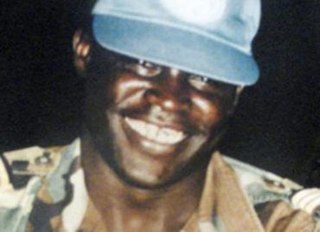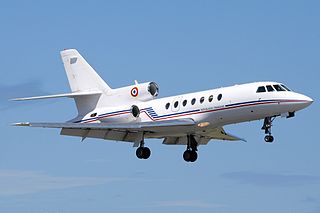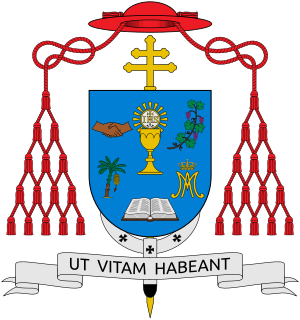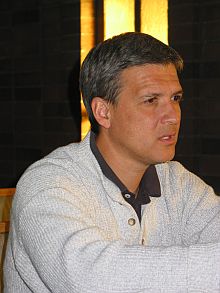
The Interahamwe is a Hutu paramilitary organization active in the Democratic Republic of the Congo and Uganda. The Interahamwe was formed around 1990 as the youth wing of the National Republican Movement for Democracy and Development, the then-ruling party of Rwanda, and enjoyed the backing of the Hutu Power government. The Interahamwe, led by Robert Kajuga, were the main perpetrators of the Rwandan genocide, during which an estimated 500,000 to 1,000,000 Tutsi, Twa, and moderate Hutus were killed from April to July 1994, and the term "Interahamwe" was widened to mean any civilian bands killing Tutsi.

The Rwandan genocide, also known as the genocide against the Tutsi in Rwanda, occurred between 7 April and 15 July 1994 during the Rwandan Civil War. During this period of around 100 days, members of the Tutsi minority ethnic group, as well as some moderate Hutu and Twa, were killed by armed militias. The most widely accepted scholarly estimates are around 500,000 to 662,000 Tutsi deaths.

Butare was a province (prefecture) of Rwanda prior to its dissolution in January 2006. Butare city is the second largest city in Rwanda and one of the nation's former twelve provinces. It is located in south-central region of the country and borders Burundi to the south. It had a population of 77.449 as of January 2006.

The assassination of presidents Juvénal Habyarimana and Cyprien Ntaryamira in the evening of April 6, 1994 was the proximate trigger for the Rwandan genocide, which resulted in the murder of approximately 800,000 Tutsi and a smaller number of moderate Hutu. The first few days following the assassinations included a number of key events that shaped the subsequent course of the genocide. These included: the seizing of power by an interim government directed by the hard-line Akazu clique; the liquidation of opposition Hutu politicians; the implementation of plans to carry out a genocide throughout the country; and the murder of United Nations peacekeepers, contributing to the impulse of the international community to refrain from intervention.

Pauline Nyiramasuhuko is a Rwandan politician who was the Minister for Family Welfare and the Advancement of Women. She was convicted of having incited troops and militia to carry out rape during the Rwandan genocide of 1994. She was tried for genocide and incitement to rape as part of the "Butare Group" at the International Criminal Tribunal for Rwanda (ICTR) in Arusha, Tanzania. In June 2011, she was convicted of seven charges and sentenced to life imprisonment. Nyiramasuhuko is the first woman to be convicted of genocide by the ICTR, and the first woman to be convicted of genocidal rape.

Mbaye Diagne was a Senegalese military officer who served in Rwanda as a United Nations military observer from 1993 to 1994. During the Rwandan genocide he undertook many missions on his own initiative to save the lives of civilians.

Sometimes in April is a 2005 American made-for-television historical drama film about the 1994 Rwandan Genocide, written and directed by the Haitian filmmaker Raoul Peck. The ensemble cast includes Idris Elba, Oris Erhuero, Carole Karemera, and Debra Winger.
Jean Kambanda is a Rwandan former politician who served as the Prime Minister of Rwanda in the caretaker government from the start of the 1994 Rwandan genocide. He is the only head of government to plead guilty to genocide, in the first group of such convictions since the Convention on the Prevention and Punishment of the Crime of Genocide came into effect in 1951.

Gitarama was one of the former twelve provinces (intara) of Rwanda and was situated in the centre of the country, to the west of the capital Kigali. Gitarama Prefecture was created in 1959, increasing the number of prefectures of Rwanda from eight to nine. In 2002, it was renamed a province, as were the other prefectures of Rwanda. It had an area of 2,187 square kilometres and a population of some 851,451 prior to its dissolution in January 2006. Gitarama was divided into 8 districts: Muhanga, Kayumbu, Kabagali, Ntenyo, Kamonyi, Ntongwe, Ndiza and Ruyumba; and two towns: Ruhango and Gitarama. Gitarama bordered the provinces Butare, Gikongoro, Kibuye, Gisenyi, Ruhengeri, Kigali-Ngali and Kigali City Tourist attractions included the Kamegeri rocks and the Busaga forest.

Islam is the largest minority religion in Rwanda, practiced by 4.6% of the total population according to 2006 census. Virtually all Muslims in Rwanda are Sunni Muslim. Islam was first introduced into Rwanda by Muslim traders from the East Coast of Africa in the 18th century. Since its introduction, Muslims have been a minority in the territory, while the Christianity, introduced to Rwandans during the colonial period in the late 19th century is the largest religion in the country.

On the evening of 6 April 1994, the aircraft carrying Rwandan president Juvénal Habyarimana and Burundian president Cyprien Ntaryamira, both Hutu, was shot down with surface-to-air missiles as their jet prepared to land in Kigali, Rwanda. The assassination set the Rwandan genocide in motion, one of the bloodiest events of the late 20th century.

Froduald Karamira was a Rwandan politician who was found guilty of crimes in organising the implementation of the 1994 Rwandan genocide. He was sentenced to death by a Rwandan court and was one of the last 22 individuals executed by Rwanda.
Vjekoslav "Vjeko" Ćurić was a Bosnian Franciscan friar and humanitarian. He is one of the recognized martyrs of Franciscan Province of Bosna Srebrena. In Rwanda he is known as "African Oskar Schindler". A school in Kivumu, the Father Vjeko Center, is named for him.
Stefan Steć was a major of the Polish Armed Forces. In 1994, he served as a peacekeeper in the UNAMIR forces in Rwanda under general Roméo Dallaire. For his dedication in saving lives during Rwandan genocide at the risk to his own, he was awarded the Cross of Merit for Bravery by Polish President Lech Wałęsa. He died at the age of 40 due to complications from posttraumatic stress disorder.

Antoine Kambanda is a Rwandan prelate of the Catholic Church who has been Archbishop of Kigali since January 2019. He had been Bishop of Kibungo from 2013 to 2018.
Jean-Baptiste Habyalimana was a Rwandan academic and politician who served as the Prefect of Butare and was killed during the Rwandan genocide in 1994. He was the only Tutsi prefect at the time of the genocide, and also the only prefect belonging to the Liberal Party. He had resisted the genocide.
Yolande Mukagasana is a Rwandan writer writing in French and survivor of the 1994 genocide against the Tutsi.
Jonathan Ruhumuliza is a Rwandan retired Anglican bishop. He is currently a parish priest in the Church of England and a former Bishop of Kigali and Bishop of Cameroon.
Gisimba Memorial Centre is an after-school centre for disadvantaged children in Kigali, Rwanda. Formerly, it was the oldest and best-known orphanage in Rwanda, however, in 2016 the government began closing orphanages and transferring the children under foster care and adoption to families. It was founded by Peter and Dancilla Gisimba in the 1980s. They took orphans into their home from the local community, until there were too many to house, at which point they transferred to a larger location. It was renamed the Gisimba Memorial Centre in 1990.
Michel Rwagasana was a Rwandan politician who served as secretary general of the Union Nationale Rwandaise (UNAR) and represented Nyanza in the Rwandan Legislative Assembly from 1961 to 1963. Born to Hutu and Tutsi parents in Ruanda-Urundi, Rwagasana worked for the colonial administration and advised King Mutara III Rudahigwa of Ruanda before cofounding UNAR, a Tutsi-dominated monarchist political party. UNAR lost out to the majority party, Parmehutu led by Rwagasana's cousin Grégoire Kayibanda, but supported the integration of UNAR into a coalition government as the country became independent as the Republic of Rwanda. He was killed in a purge in 1963, and is currently recognized by the Rwandan government as a national hero.










